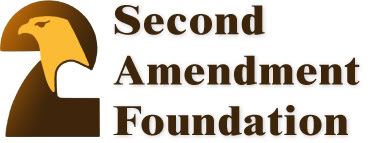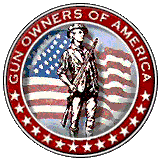 |
| 2LT Leonard Boole Van Cott |
Mount Vernon, December 7, 1862
My dear Sir,
I am as one in a dream! I saw our poor Leonard die, and I saw him buried, but yet I cannot realize that I never shall see him again. It seems impossible to give up the idea that I must see him and hear his voice again, and it is only by the sternest and most careful thought that I can full realize that the loss is actual and irremediable. When I look back to last spring and remember the part he took in your celebrations and more lately, the sword presentation, preceded by the game of Ball, the most active and strong of all engaged, how can it be, I ask myself, that he is now silent, speechless and dead! He was a noble boy! Meanness and falsehood were as unknown to his soul as to that of the purest angel! The noblest epitaph that can be placed upon his tombstone is that I never knew him to tell a lie. I relied as implicitly upon his word, as I did upon any declaration of God’s holy word. I always had a different feeling towards him, from that which I felt toward my other children. Not that I am conscious of having loved him more or having been improperly partial towards him, but he always seemed to me, at least for several years, so manly and intelligent, that I felt he was more of a companion, than either of my other boys, although two of them were older than he. But why need I say anything to you about one you knew so well? I thank you for your words of kindness and sympathy, received through the boys. It now only remains that I describe to you his last hours, very briefly, because I know it will be a satisfaction, though a sad and mournful one. On the 25th of November, I received a telegram from the Colonel of the Regiment “Leonard is not so well, and yet cannot get leave to go home. He wants to see you here.” This was the first intimation I had received of his being unwell all his letters prior to that time (the last received on the 22nd) had been written in high health and spirits, and spoke of his great enjoyment of camp life. By some incomprehensible mistake, which I have not yet been able to fathom, this telegram, although sent from “Centreville” was dated “Tenally Town” (possibly Taney Town). Wondering how the regiment could be at the latter place, whis is only about five miles out of Washington, as my last letter had been written from Gainesville, I nevertheless took the first train and went to Tenally Town. I there learned that the regiment had never been there, and from the telegraphic operator, that no such message had been sent from there, I could learn nothing of the whereabouts of the regiment, and thinking that the whole thing might be an error, I returned to New York. On going to my office, however, I found a letter from the Colonel, dated the 22 November, at Centreville, stating that Leonard was somewhat ill—that he was not seriously so—that he had applied for permission for him to go home, and I did not doubt but that he would get it, too—(This letter explains the language of the telegram which I have quoted) I immediately telegraphed, “How is Leonard? And how can I reach you?” and received in reply, “Leonard is very ill—come to Centreville by way of Washington.” I left by the first train and reached Centreville, last Saturday afternoon at 3 o’clock I found Leonard very ill, at a stone house, where it was warm and dry, and receiving every attention and care that was possible, under the circumstances. His disease was typhus, and he was delirious nearly all the time. I could not tell certainly that he recognized me before Monday, although I occasionally thought there was a momentary gleam of recognition. The great difficulty was, that his utterance was so thick, on account of his throat, that it was almost impossible to distinguish any of his utterings. But on Monday he recognized me distinctly. I asked him if he knew me He answered Yes Sir. And, as I was moving away from his bed for some purpose, he asked, “Where are you going?” I told him, I should no leave him, but would stay till I took him home. He asked if he could not go home at once. I told him he was not quite strong enough yet. This was the only lucid conversation I had with him, and this I made as short as possible, on account of his extreme debility. But on this day the doctor’s hopes were very strong, and son continued throughout the day and evening. But on Tuesday morning he was much worse, There seemed to be a complication of diphtheria, which was probably the immediate cause of his death. He died about ten o’clock Tuesday morning, very peacefully, but, to all appearances, unconsciously. The doctor, who was really a skillful man, was indefatigable in his exertions, scarcely leaving him by night or by day. We had also the advice of the surgeon of another regiment, and of the Brigade surgeon, who both coincided in the mode of treatment. It was great satisfaction to be there to witness his last respiration and close his eyes, but very sad to think, that with so many friends who loved him, I was the only one present to tend or care for him. The poor boy, during his illness, often tried to sing, and I doubt not was tying to sing some of the songs he had often sung at your happy home. It would have been a great happiness to me, could he have been conscious of the change which was about to take place I know I should have been charged with many commissions of love to Washington for I know he loved it beyond any place under the skies. I could give you many quotations from his journal to show this but one must suffice. “August 18th, Monday” (The last day he was in Washington.) “Up bright and early to be off at half past six. Everybody came down to Mr. Gunn’s to see me off, and such a kissing time as I had I shall probably never experience again. No one has ever gone to war with more happy recollections than I have. Washington seems like a family from which I have torn myself away. Farewell Washington! With you my happiest hours have been spent, hours, which with their happiness can never again be experienced. Farewell Washington! And should heaven spare me, on my return, my steps will be toward it, which should I live a hundred years, will always be fresh in my remembrance. Good by school life, and now to become a soldier"” Leonard left some letters which I deem to sacred to peruse and shall return to the writer But I had less delicacy about those from Mrs. Gunn and Miss Bell Brinsmade and I will trouble you to express my thanks to them for their kind and considerate advice to our poor lost boy. He never made any outward profession of faith in Christ but I sincerely trust, that God, in his mercy had taken him to his mother in heaven. I state to you, that the Colonel’s telegram was my first intelligence of his being, in the slightest degree, unwell. But I have since heard, that it was known to _______________. It had occurred to me, that, as I was unwilling he should go to the war, he might feel unwilling, on that account, to complain to me. Will you let me know how this is, through inquiries of Mrs. Gunn and Miss Brinsmade? I should like to see any letter, or extracts of letters, that you think would interest me.
And now as to this fearful and terrible war! My hatred of its cause is entirely unabated, rather very much increased. But where is it going to end, God only knoweth! I begin to be greatly alarmed on this point. What with bickerings and jealousies between Generals, and those high in authority in civil life, and the well know purposes of northern sympathizers, I begin to fear, somewhat, the result. Did I not believe that God was on our side I should be dismayed. God useth instrumentalities! And the time may not be distant, when you and I, and every lover of his country, will be required to buckle on the sword or shoulder the musket, and, if needs be, die in defence of great principles. I feel ready, today, rather to die, than see the great principles of which we have been fighting, surrender. I beg you to remember me to all friends.
Very truly Yours
W. W. VanCott
F. W. Gunn Esq.
This letter is recounting the Judge's recent death of his son, Lieutenant Leonard Boole Van Cott, due to disease during Leonard's Civil War service, to the Headmaster of "
The Gunnery" in Washington, CT.
 |
| William, Leonard and Theodore (l-r) |
The judge is my Great, Great, Great Grandfather William Hathaway Van Cott. The judge had 4 sons (of 6) who survived to adulthood the oldest three of whom served in the Civil War. Leonard was studying at The Gunnery in Washington, CT when service called and was able to acquire a commission in Company I
119th New York Infantry. He must have made quite an impression as his headmaster and fellow students presented him with a sword when they sent him off to war. The sword still exists and I understand it is being presented to The Gunnery today for inclusion in their museum. That is a good place to both preserve the artifact and to honor our long departed great grand uncle.
Leonard was only 16 (not 18 as reported in official records) when he died. Like the vast majority of
Civil War dead it was disease that took him from his family and cut short a life of great promise. Prior to attending Mr. Gunn's school he was in the Introductory Class at The Free Academy (later became City College) which was also attended by his brother Theodore. Apparently he was quite a good student.
 |
| Uncle Leonard's Sword |
I have been told that today, 1 May 2011, his sword will return to Mr. Gunn's school to be preserved for posterity.
I found an interesting site regarding Uncle Leonard, "
Letters from Charlie Goodyear".

























No comments:
Post a Comment